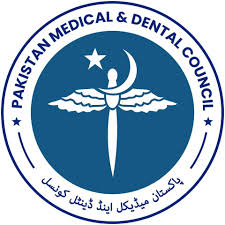Investigating Third-Year MBBS Students’ Preferences for Various Learning Approaches in Forensic Medicine: A Cross-sectional Study
DOI:
https://doi.org/10.37018/JFJMU/9212Keywords:
Problem-Based Learning, Forensic Medicine, Effectiveness, Educational Student Preferences, Self-Directed LearningAbstract
Background: Medical education forms the foundation for competent and compassionate healthcare professionals. Learning Forensic Medicine and Toxicology plays a crucial role in understanding the medico-legal aspects. Teaching comprises all basic, pre-clinical and practical aspects of the subject and provides scientific expertise in investigating deaths, injuries, and poisoning cases. Thus teaching the subject with core concepts understandable to the intended audience is of paramount importance yet has not been explored in this particular subject. Problem-based learning (PBL) is a widely used educational approach in medical education, given the fact the study aims to investigate preferences about different approaches of PBL learning.
Subjects and methods: The study was a descriptive cross-sectional out at the Department of Forensic Medicine and Toxicology, Sahara Medical College, Narowal from January to December 2023. The sample size of 100 students was determined using standard educational research practices, considering the course enrollment, expected response rate, and statistical power. This was based on a 95% confidence level, a 5% margin of error, and a population of 513, ensuring precise findings.
Results: The students highly valued student-centred learning (93%) and reflection and evaluation (100%). Preferences were mixed for aspects like authentic problems (73% positive, 27% concern), collaborative learning (59% positive, 41% concern), and integration of knowledge and skills (71% positive, 29% concern). Most students (89%) appreciated self-directed learning, with some concerns (11%).
Conclusion: The study revealed that students highly valued student-centred learning and reflection in PBL while expressing concerns about authentic problems, collaborative learning and integration of knowledge and skills. Addressing concerns through curriculum refinement can enhance student engagement and skill development in Forensic Medicine. Further research with diverse populations is needed to understand the broader impact of PBL on learning outcomes. The study revealed interventional significance in terms of improvement in academic grades of PBL on learning outcomes.
Downloads
Published
How to Cite
Issue
Section
License
The Journal of Fatima Jinnah Medical University follows the Attribution Creative Commons-Non commercial (CC BY-NC) license which allows the users to copy and redistribute the material in any medium or format, remix, transform and build upon the material. The users must give credit to the source and indicate, provide a link to the license, and indicate if changes were made. However, the CC By-NC license restricts the use of material for commercial purposes. For further details about the license please check the Creative Commons website. The editorial board of JFJMU strives hard for the authenticity and accuracy of the material published in the journal. However, findings and statements are views of the authors and do not necessarily represent views of the Editorial Board.

















